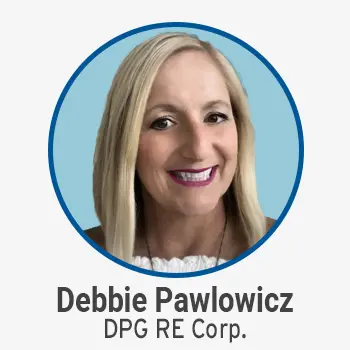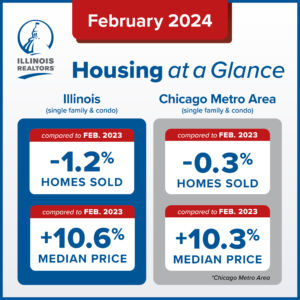
Several real estate niches including green, seniors and land are covered in the July Illinois REALTOR® Magazine
Farm land is big business in Illinois and you don’t need to look far beyond the outskirts of any major city or small town to see it for yourself. Uniform row upon row of corn and soybeans stretching to the horizon line.
According to the Illinois Department of Agriculture, close to 80 percent of the state’s total land area is covered by farms. And the asset return for farm land has averaged 10.4 percent over the last 40 years according to University of Illinois economists, say land real estate experts REALTORS® Mac Boyd, ARA, ALC, GRI and Winnie Stortzum, ARA, ALC, GRI of Farmers National Company in Arcola, Illinois.
The two collectively have 65+ years experience in land brokerage and appraisal and countless hours of education, which is required for success in this niche featured among five others in the story “Grow a Niche & Grow Your Business” in the July Illinois REALTOR® Magazine.
During the interview for the story, Stortzum noted that Article 11 of the 2010 REALTOR® Code of Ethics was amended to include “land brokerage” among the specialized fields of professional service that require specific training as well as disclosure to the client if you don’t have the expertise.
Stortzum says courses offered by the REALTORS® Land Institute leading to the Accredited Land Consultant designation (ALC) are beneficial including the Land 101 introductory course and courses on land investment analysis and appraisal. The American Society of Farm Managers and Rural Appraisers also provides quality coursework leading to related designations.
“It really is a niche education,” says Boyd. “It’s totally different than residential. You have to know something about an area’s agricultural production, about the location and the soil productivity index. Most of the land outside Chicago and the collar counties is rural. Knowing how to valuate rural land—whether it is tillable land, recreational or hunting land, or transitional land—is key.”
And, unlike the buyer’s market conditions we’ve seen in residential, it’s definitely a seller’s market for farm land in many areas in Illinois at this time.
“It’s the law of supply and demand,” says Stortzum. “In this tight economy, landowners are holding on to their land because they can get a better return on their investment over the stock market and other investments.”




 Create professional development programs that help REALTORS® strengthen their businesses.
Create professional development programs that help REALTORS® strengthen their businesses.
 Protect private property rights and promote the value of REALTORS®.
Protect private property rights and promote the value of REALTORS®.
 Advance ethics enforcement programs that increase REALTOR® professionalism.
Advance ethics enforcement programs that increase REALTOR® professionalism.
 Protect REALTORS® by providing legal guidance and education.
Protect REALTORS® by providing legal guidance and education. Stay current on industry issues with daily news from Illinois REALTORS®, network with other professionals, attend a seminar, and keep up with industry trends through events throughout the year.
Stay current on industry issues with daily news from Illinois REALTORS®, network with other professionals, attend a seminar, and keep up with industry trends through events throughout the year.






